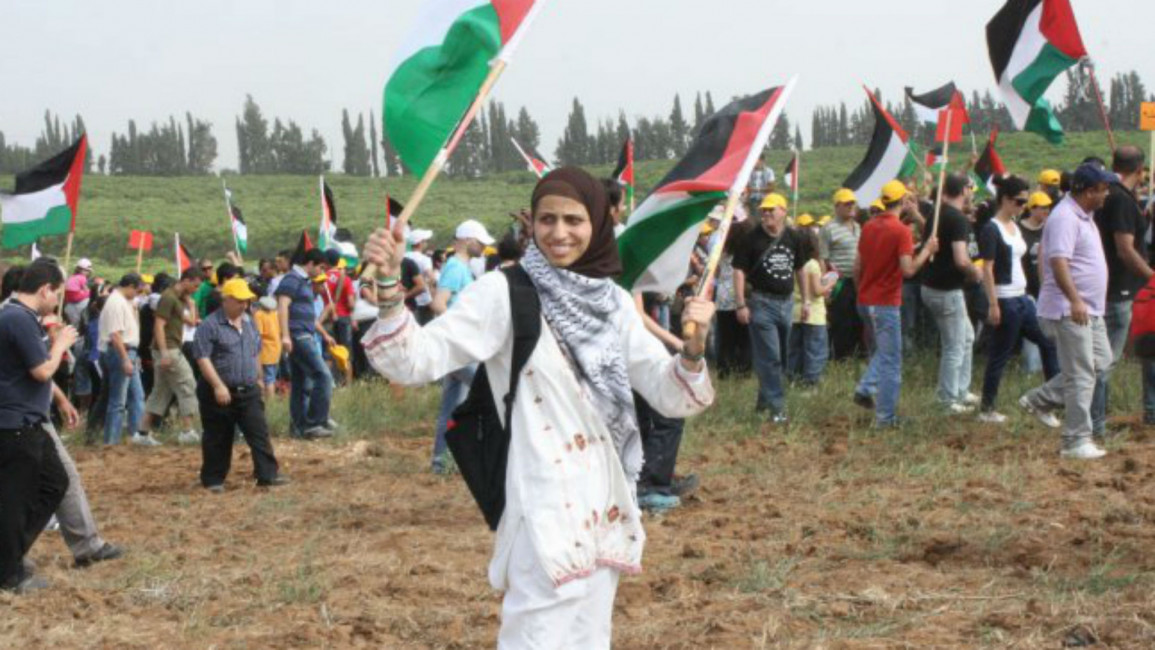Israel releases Palestinian poet jailed for 'online incitement'
A Palestinian woman jailed for five months for "incitement to violence and support for a terrorist organisation" in online poems and other social media posts was released from Israeli prison on Thursday, signalling a bitter end to a case that has shed light on injustices over freedom of speech and online surveillance of Palestinian citizens of Israel.
Dareen Tatour posted a video clip of herself reading her poem "Resist, my people, resist them," in October 2015, accompanied by pictures of clashes between Palestinians and Israeli forces, according to authorities.
The posts on YouTube and Facebook came as a wave of Israeli-Palestinian violence was erupting.
The 36-year-old Israeli citizen was sentenced in July.
She was released on Thursday due to time served before her conviction, she and a prison spokesman said.
"Freedom is something so sweet that I can't even describe it," Tatour told AFP after her release.
She added that she planned to publish a collection of poems and a novel on her experience in prison.
She was "convicted for doing what writers do every day - we use our words to peacefully challenge injustice", the group said.
The offending verses were quoted in Hebrew in the charge sheet, but according to an English translation on the Arabic literature site ArabLit, they contained the following:
"For an Arab Palestine, I will not succumb to the 'peaceful solution,' Never lower my flags, Until I evict them from my land, Resist the settler's robbery, And follow the caravan of martyrs.”
Tatour, who denied all charges, said her poem had been misinterpreted by the Israeli authorities.
She insisted she was not calling for violence through her poem, but for a struggle, which Israeli authorities had assumed to be violent.
Literary and translation experts were called in to decipher the poem's meaning, specifically over the use of the word shaheed, meaning "martyr".
Read more: The 'A' word: Is Israel's censorship strategy sustainable?
"The Israeli hears 'shaheed' and sees an aggressor. The Palestinian sees a victim. That's a big difference. One sees an attacker blowing up a bus, the other sees a child shot by soldiers," translation expert Yonatan Mendel told the court in March 2017, according to Reuters.
Prosecutors said that on October 4, 2015 she also quoted a statement by Islamic Jihad calling for "continuation of the intifada in every part of the West Bank", alleging it showed her support for the outlawed militant group.
She has been deemed by Israeli authorities as a "threat to public safety" and been under house arrest since January 2016, during which she has also been denied access to the internet.
Tatour's case sheds light on the advanced online surveillance methods used by the Israeli authorities to sift through social media content to find evidence of incitement to violence.
The unrest that erupted in October 2015 subsequently claimed the lives of at least 303 Palestinians, 51 Israelis, two Americans, two Jordanians, one Eritrean, one Sudanese and one Briton, according to AFP.
Most of the Palestinians killed were carrying out attacks, or shot dead during protests or clashes with Israeli forces, while some were killed in Israeli airstrikes on the Gaza Strip.
Discrimination, oppression, injustice
Literary figures have rallied around Tatour's cause since her charge. International writers group Pen defended Tatour in a statement.
"Dareen Tatour has been convicted for doing what writers do every day - we use our words to peacefully challenge injustice," it said.
American poet Eileen Myles was one of twelve writers to give a statement of solidarity, saying: "Israel’s claim to be a democracy is roundly trounced by this attempt to silence Dareen Tatour. Language lives and dies in poetry and the human cry for freedom breathes in a poets utterance."
Read more: Nine inspirational women from the Middle East
Senior Palestinian official Hanan Ashrawi said the treatment of the poet was very different to that meted out to Jewish Israelis in similar circumstances.



